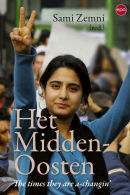(12-05-2013) Inside Iraq’s Boom Zone
(12-05-2013) Inside Iraq’s Boom Zone
(29-05-2013) Interview with Sheikh Mohammed Bashar Al-Faidhi, spokesperson of the Association of Muslim ...
(27-05-2013) Why Maliki Must Go
(17-05-2013) Sectarianism in Iraq stoked by Syrian war
(12-11-2012) Iraq Rethinks Russian Arms Deal
The BRussells Tribunal is independent and wants to remain independent.
The BRussells Tribunal is an activist think tank and peace organisation with a special focus on Iraq. Read more...



 The times they are a-changin' is het eerste grondige Nederlandstalig overzicht dat voorbij oppervlakkigheden en algemeenheden wandelt, en ook nog eens de hele regio bestrijkt, van Egypte en Tunesië tot Marokko, Libië, Syrië, Libanon, Palestina, Jemen, Jordanië, Irak, Bahrein en Israël. Daar bestaat een woord voor: een standaardwerk.
The times they are a-changin' is het eerste grondige Nederlandstalig overzicht dat voorbij oppervlakkigheden en algemeenheden wandelt, en ook nog eens de hele regio bestrijkt, van Egypte en Tunesië tot Marokko, Libië, Syrië, Libanon, Palestina, Jemen, Jordanië, Irak, Bahrein en Israël. Daar bestaat een woord voor: een standaardwerk.